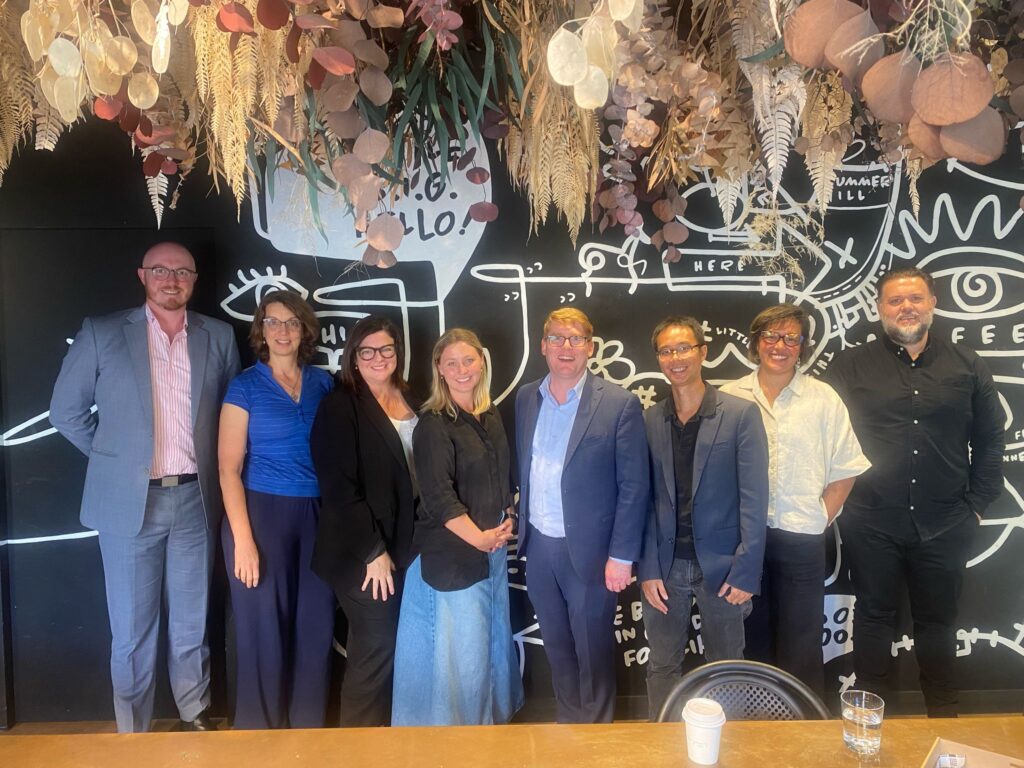
Last week we had the pleasure of welcoming Anthony D’Adam MLC to the Little BIG House for a warm cup of coffee, a tour of our community hub, and a heartfelt conversation with some of the volunteers and local residents who bring this place to life.
As Anthony explores policy reforms to better support community activation, and as a member of the Parliamentary Inquiry into Loneliness, it was a welcome opportunity to share the realities of what it takes to build connection in a city where loneliness is one of the fastest-growing social issues. We’re grateful for the time he spent listening and learning from those on the ground, who are finding creative, low-cost ways to foster a stronger sense of belonging in apartment buildings, parks, and shared spaces.
During the visit, our volunteers shared the real-life experience of delivering more than 90 free community events every month with no government funding. From book clubs and yoga to gardening, workshops, kids’ activities, and neighbourhood dinners, these events are powered entirely by local generosity, good ideas, and people showing up for one another.


The Little BIG House isn’t just a venue, it’s a living, breathing example of what happens when residents are empowered to create the kind of neighbourhood they want to live in.
But it’s not without its challenges.
Our volunteers spoke candidly about the disparities that exist between government-supported community centres and grassroots efforts like ours. Anthony also heard from residents of the Flour Mill Precinct, where a deep commitment to placemaking has delivered outstanding results for knowing neighbours names and a genuine care for one another.
This model raises a critical question: How can we better help and recognise communities that are doing the right thing? When passionate locals invest in building a better neighbourhood, they should be supported.
The visit with Anthony left us feeling hopeful. There is growing recognition that our current systems don’t fully support the people and places that are stepping up to create social connection, particularly in strata and mixed-use developments with private ownership structures.
We believe policy can—and should—do more to:
- Support volunteer-led community infrastructure
- Recognise the public value of privately activated spaces
- Reward, rather than penalise, well-planned developments and active communities
- Fund community connection as essential social infrastructure
Thank you, Anthony, for taking the time to meet with us, listen to our stories, and consider how policy reform can help level the playing field for communities like ours. We’re excited about the possibilities that lie ahead, and proud to be part of a movement that’s making big change from the ground up.